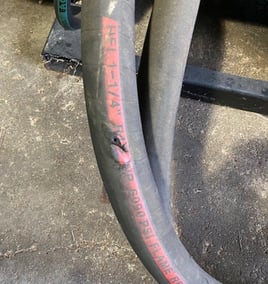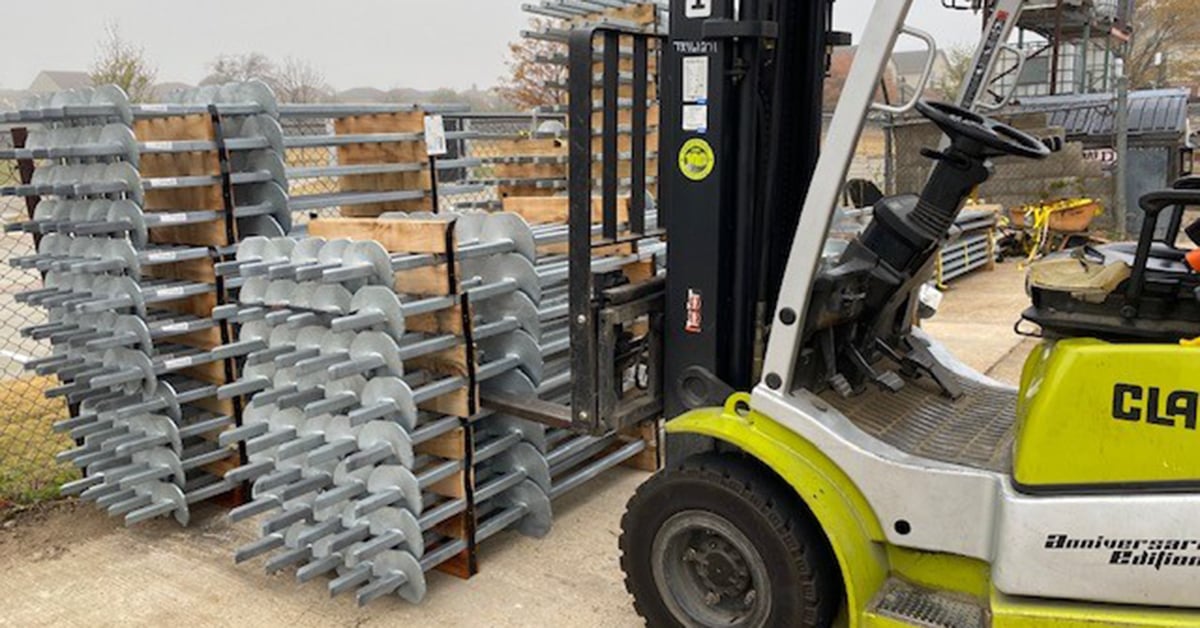With the heavy construction season slowing down in the winter months, it is a good time to conduct maintenance on equipment and instill the importance of equipment upkeep. Everyone gets in the habit of checking their vehicle’s oil, but what about lubrication in the bearings for your trailers? Having a checklist to reference daily, weekly, monthly, and yearly can help alleviate downtime. If this is your first time setting up a schedule, let’s start by looking at what it takes to get to the jobsite. I am not going to consider that companies are not servicing their vehicles or their equipment.
It is a good idea to have your forklift serviced at least twice a year. The guys loading up the trucks will appreciate forklift maintenance when it’s time to load up for a job. Service companies are easy to find for forklifts and they typically perform on-site repairs.
A trailer is another key piece of equipment that if it breaks down, you’re stuck. Trailer maintenance includes checking the oil level for the bearings, trailer brakes and hubs and looking for any deformation in the axles or the frame of the trailer. One good tip is that it is sometimes less labor intensive to buy a new axle with new hubs and brakes than to simply repair hubs and brakes.
At the job site, it is always best to get in the habit of checking the helical pile drive motor and helical pile installation tooling. Look for any frayed hoses, damaged hydraulic fittings, and replace them before they start leaking. Always keep an extra set of hoses that connect from the drive motor to your machine. A small investment of $500 in hoses can save hours of downtime. It is also good to check the levels of the gear oil in your drive motor gearbox and the hydraulic oil level in your equipment reservoir. The fill amounts required can vary so keep a folder in the vehicle or machine with all the oil level requirements for your equipment.
CHANCE® helical pile installation tooling manufactured by Hubbell Power Systems, Inc. is the best that we have ever used. If you get in the habit of consistently checking the tightening torque on the nuts and bolts affixing the equipment together, you should never have an issue, unless improper installation techniques are used. We like to check the torque on the bolts before the first CHANCE helical pile is put in the ground. You are dealing with high torque levels during installation and a daily check ensures extended life for the equipment; and more importantly, helps ensure that all measures are being taken to ensure employee safety.
Some ideas for your checklist:
√ Lubrication/oil level in trailer bearings
√ Check trailer brakes and hubs
√ Check trailer axles for deformation
√ Have forklift serviced
√ Check installation tooling
√ Inspect Drive Motor - including frayed hoses, damaged hydraulic fittings
√ Purchase an extra set of hydraulic hoses
√ Check level of gear oil in your drive motor gearbox
√ Check hydraulic oil level in your equipment reservoir
√ Make sure bolts on installation tooling are properly installed and tightened

